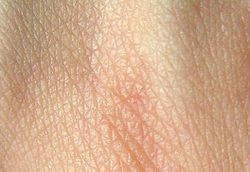Bad Science/Detox/Background
Scientific Claims in Advertising: Let's Get Detoxed!
[edit | edit source]Background Notes
[edit | edit source]What is real detox?
[edit | edit source]Excretion is the process by which our bodies chemically separate waste products and eliminate them!
Your body is naturally detoxing all the time.
Your excretory system is what removes harmful substances from your body, allowing it to survive.
When harmful substances are converted into less harmful ones, this process is called detoxification.
The main organs of excretion are the:
- Lungs
- Kidneys
- Skin
- Intestine
So what’s a “toxin”?
[edit | edit source]“Toxin” really refers to the waste products of metabolism, and these shouldn’t build up in our bodies. An example of a waste product is urea, which we get rid of in our urine and sweat. Waste gases, such as carbon dioxide, are eliminated when we breathe out.
Natural Born Cleaners: Kidney Facts
[edit | edit source]Kidneys (which look just like kidney beans, funnily enough) clean the blood. Blood is pumped from the heart through the renal artery to each kidney, and any waste matter and excess water is filtered off. This liquid waste is urine, which as we all know, leaves your body when you go to the toilet.
Filtered blood flows through the renal vein back to the heart. Severe kidney disease requires a treatment known as dialysis. The patient’s blood is pumped through a dialysis machine, which does the work of the kidneys: filters the waste from the blood, and returns the clean blood.
Did you know?
[edit | edit source]Your kidneys are the size of a clenched fist, yet they receive about 20% of the blood pumped by the heart. Dialysis patients spend nearly 60 hours a week attached to a dialysis machine. More than 300,000 people in the U.S. suffer from renal failure each year and are waiting for a kidney transplant. Healthy people can survive perfectly well with one kidney, and so can donate one to someone with kidney disease as long as their tissues match.
But did you know, if you need a kidney transplant, your non-functional one would not be swapped for the donor one, instead it’s added somewhere else in your abdomen.
The earliest successful kidney transplant in a human was performed by RH Lawler (USA) at Little Company of Mary Hospital, Chicago, Illinois USA on 17 June 1950.
A specialised excretory organ is your liver:
Its major excretory function is to break down old red blood cells
(ones that have reached their normal life span, a mere 100
days in humans. Parts of the haemoglobin molecule are
transformed by the liver to compounds known as bile
pigments. These are excreted in the bile (important in the
digestive process), discharged into the intestine and finally
out of the body with the faeces!





